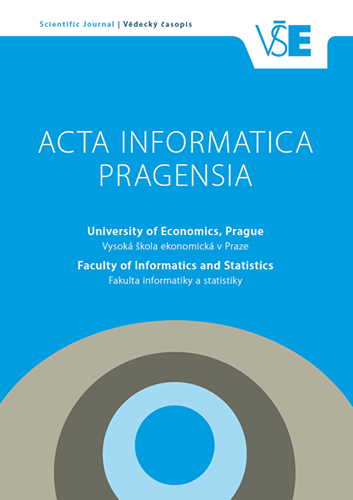Examining Adaptive E-Learning Approaches to Enhance Learning and Individual Experiences
Examining Adaptive E-Learning Approaches to Enhance Learning and Individual Experiences
Author(s): Fateh Benkhalfallah, Mohamed Ridda Laouar, Mohamed Salah BenkhalfallahSubject(s): Education, Higher Education , Educational Psychology, Methodology and research technology, ICT Information and Communications Technologies, Distance learning / e-learning, Pedagogy
Published by: Vysoká škola ekonomická v Praze
Keywords: Adaptive Learning Approaches; Macro-Adaptive Approach; Aptitude-Treatment Interaction; ATI; Micro-Adaptive Approach; Learning Process; Knowledge Generation
Summary/Abstract: The concept of individualization has emerged as an essential advance in education, representing a paradigm shift adopted by educational systems worldwide. This paradigm evolution aims to optimize student performance by harnessing the potential of diverse e-learning platforms tailored to individual needs. These platforms enable students to acquire knowledge that matches their unique interests and skills. This not only fosters academic prowess but also proactive engagement of stakeholders invested in talent development endeavours. This paper attempts to provide a holistic overview of adaptive e-learning approaches using a recognized categorization framework. This categorization delineates three main approaches: the macro-adaptive approach, the aptitude-treatment interaction approach and the micro-adaptive approach. Through the exposition of illustrative examples within each category, the paper seeks to elucidate and scrutinize the similarities and differences inherent in these approaches. Furthermore, it endeavours to outline the theoretical foundations of the learning process. It contrasts e-learning with traditional learning modalities and examines the transformative impact of e-learning on the learning process and knowledge generation. By delving into the historical trajectory of adaptive e-learning platforms, the paper reveals a symbiotic relationship between their evolution and the evolving principles of education and cognitive science. Ultimately, the study strives to bring a nuanced understanding of the adaptive e-learning landscape and its evolutionary trajectory over time, thereby contributing to the broader discourse surrounding educational innovation and pedagogical progress.
Journal: Acta Informatica Pragensia
- Issue Year: 13/2024
- Issue No: 2
- Page Range: 327-339
- Page Count: 13
- Language: English

